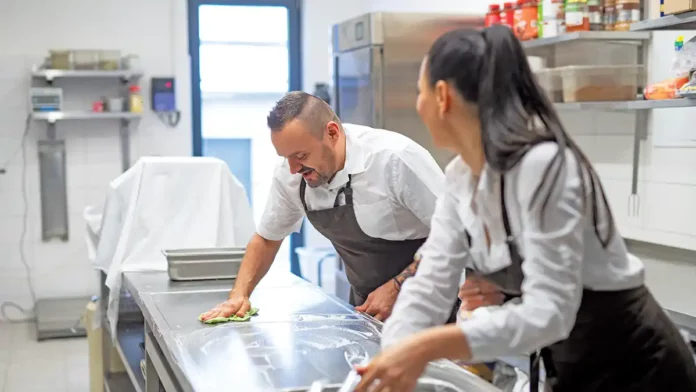Effectively managing liability risk is crucial for the resilience of your restaurant. With the increasing frequency and complexity of claims, implementing proactive strategies is more important than ever to protect your finances and reputation.
1. Identify and Prepare for High-Risk Claims
Certain incidents—such as slip and fall accidents, foodborne illnesses, and equipment failures—pose unique risks that require careful preparation. For example, slip and fall accidents are among the most common claims against restaurants. Establish proper training and policies to help lower your risk of being involved in this success-threatening claim.
By identifying high-risk areas in advance, you can set protocols to report incidents immediately, collect supporting documentation, and track the situation’s progression. Leveraging your insurer will minimize the financial impact and protect your restaurant’s reputation when an incident happens.
2. Maintain Comprehensive Documentation and Reporting Standards
Timely reporting and complete documentation are essential for a successful claims process. Liability policies typically require incidents to be reported as soon as practicable, with delays potentially impacting coverage. Incident reports, statements, and other supporting documents need to be accessible and accurate. Detailed documentation allows insurers to make informed decisions quickly and can protect against potential claim denials due to missing information. Remember that clear, consistent documentation streamlines claims processing and controls costs.
3. Understand the Scope and Limits of Your Policy Coverage
Knowing the specific terms, coverage limits, and exclusions of your liability policies can prevent unexpected coverage gaps. Different policies, such as Commercial General Liability, Directors and Officers (D&O), and Employment Practices Liability (EPL), come with unique conditions. For example:
- Occurrence-based vs. claims-made policies: Some policies require incidents to happen within the policy period (occurrence-based), while others require the claim to be made within the policy term (claims-made).
- Common exclusions: Many policies exclude specific scenarios, such as intentional misconduct, damage to owned property, or contract breaches.
Regularly review your coverage with a risk advisor to ensure it aligns with your restaurant’s current risks.
4. Stay Vigilant with Cyber and Environmental Exposures
Liability policies are evolving, especially in areas like cyber and environmental liability, where claim frequency and severity are rising. Cyber liability often requires multiple policy types (i.e., cyber vs. cybercrime), as the threats have become more difficult to manage. Environmental policies may include both third-party and first-party coverages, such as property cleanup and crisis management. Some environmental insurance requires pollutant levels to meet specific thresholds before coverage applies. Understanding how cyber and environmental policies are changing can help your risk management and response preparation long before a possible incident occurs.
By investing in consistent documentation practices, clearly understanding policy terms, and preparing for high-risk claims, you can create a more resilient restaurant operation.
Learn more at https://www.hubinternational.com/industries/hospitality-insurance/

